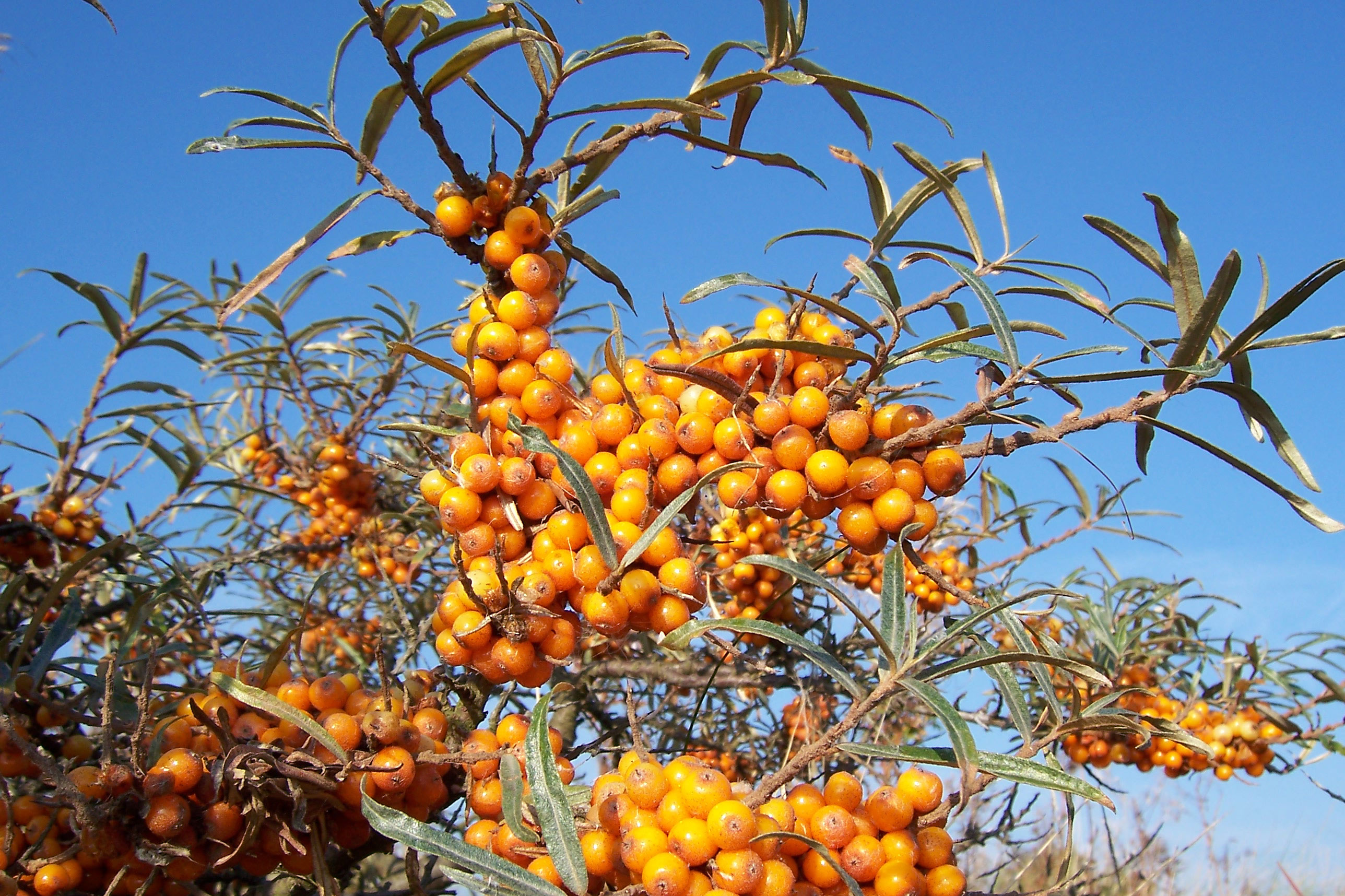
H. rhamnoides is a deciduous and hardy shrub that can grow between 2 and 4 m high (between 7 and 13 ft).It has a rough, brown or black bark and a thick, grayish-green crown.The leaves are alternate, narrow and lanceolate, with silvery-green upper faces.It is dioecious, meaning that the male and female flowers grow on different shrubs.The sex of seedlings can only be determined at the first flowering, which mostly occurs after three years. The male inflorescence is built up of four to six apetalous flowers, while the female inflorescence normally consists of only one apetalous flower and contains one ovary and one ovule.Fertilization occurs solely via wind pollination, which is why male plants need to be planted near the female plants to allow for fertilization and fruit production.
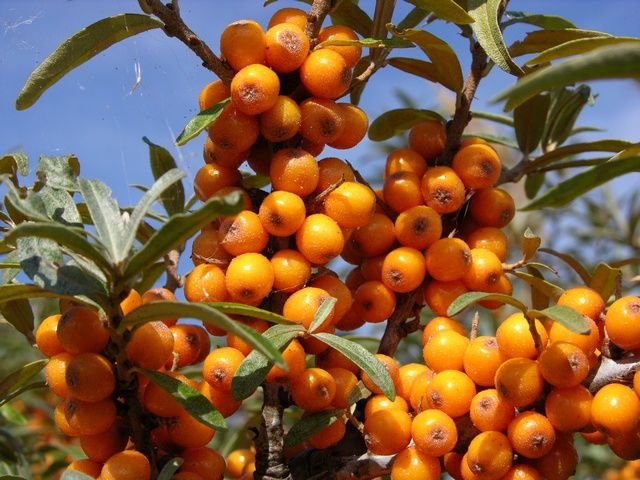
The oval or lightly roundish fruits grow in compact grapes varying from pale yellow to dark orange.Individual fruits weigh between 270 and 480 mgand contain high amounts of vitamin C, vitamin E, carotenoids, flavonoids and health-beneficial fatty acids,as well as higher amounts of vitamin B12 than other fruits.
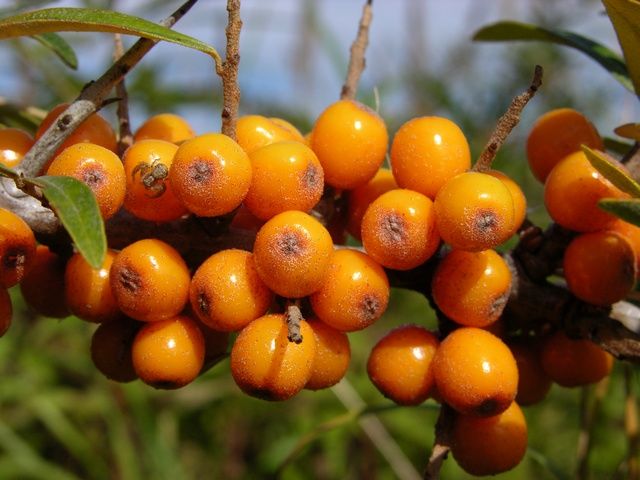
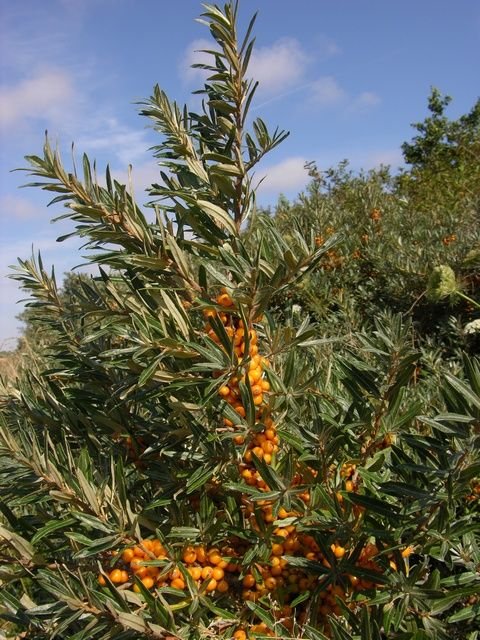
The plants have a very developed and extensive root system, and the roots live in symbiosis with nitrogen-fixing Frankia bacteria. The roots also transform insoluble organic and mineral matters from the soil into more soluble states.Vegetative reproduction of the plants occurs rapidly via root sucker.
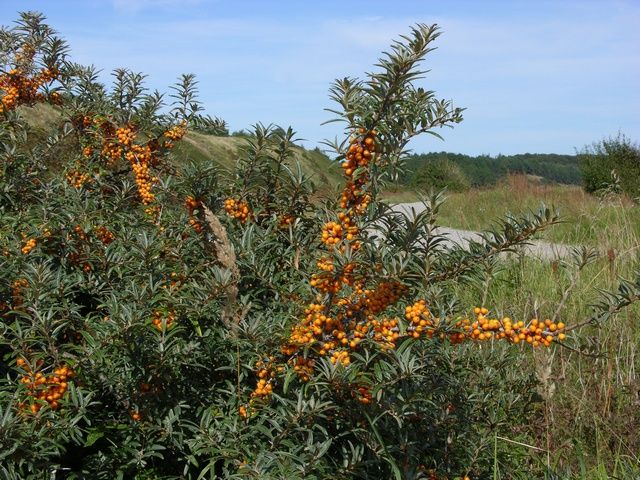
Downvoting a post can decrease pending rewards and make it less visible. Common reasons:
Submit